"The Tottenham Outrage" centenary
Known foreign subversives living in London and committing crime.
Public dismay at the lack of control over immigration.
Brave policemen laying down their lives to protect the public from acts of foreign terrorists.
No, not the result of a decade of New Labour Government, but the situation behind what came to be known as the 'Tottenham Outrage', which took place 100 years ago this week.
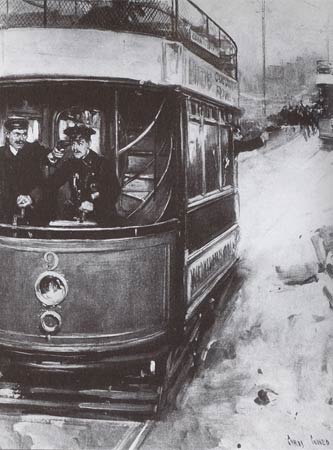
At around 10:30am on Saturday 23rd January 1909, 'Paul Helfeld' and 'Jacob Lepidus' pulled off a wage snatch at the Schnurmann Rubber factory in Tottenham. During the course of the robbery they fired gunshots, which were heard by the local police. They began to give chase.
There then followed an extraordinary sequence of events which involved both police and the public pursuing the criminals from Tottenham to Walthamstow, covering six miles. Two people, a small child and a policeman, were killed, 20-odd were injured, and both of the robbers committed suicide.
Press reaction
The press were scathing of the authorities in the aftermath of the episode. Although the police had responded quickly to the initial robbery, they had been unable to access their own firearms at one point due to a lost key in the police station. One policeman even had to borrow a gun from a passer-by.
On the 25th of January the Daily Mirror headline was:
"Murderous outbreak of Russian anarchists in London"
and the following Saturday the paper led with:
"Police Constable Tyler who was murdered by alien terrorists at Tottenham, given a hero's funeral"
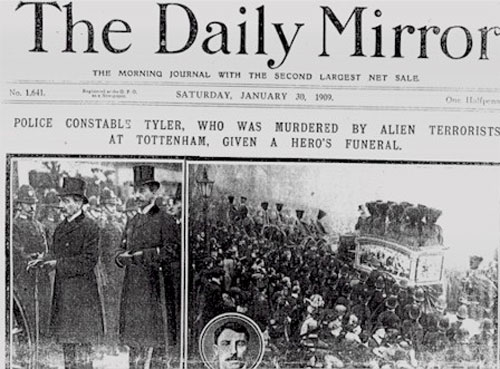
The Walthamstow Tramway connection
My interest in the event centres around the fact that the chase involved several vehicle hijacks. As well as a milk cart and a greengrocers cart, Helfeld and Lepidus hijacked a local Walthamstow tram. It was tramcar number 9, and, having forced the conductor to drive it, they abandoned it on Chingford Road, next to the tramways office. This is situated right near where I grew up, and I've written about the old Walthamstow Tramways Office before.
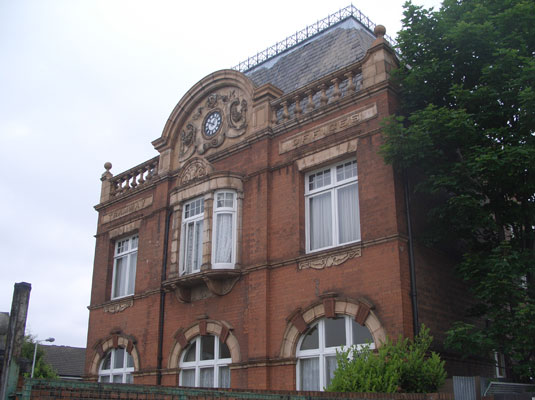
There are photos of the damaged tram after the shootings.
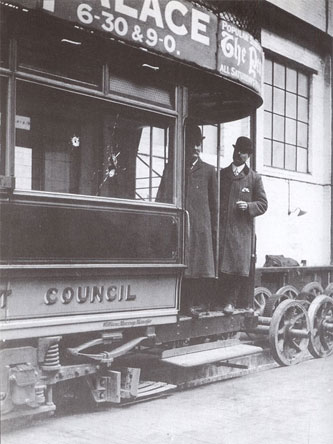
I've got a booklet about the whole story called "Secrets of the Tottenham Outrage" by Patricia Collier which covers the events in detail. One of my favourite passages from it is this:
"P.C. Tyler was given a public funeral on 29th January. Among the wreaths laid on his grave after the service was one from the Imperial Russian Consul-General. An accompanying letter to the Commissioner expressed admiration for the London Metropolitan Police and deep sympathy for the bereaved but added, 'The murderer, who is said to be a Russian subject, was not Russian-speaking ethnographically.'"
A clear case of Latvia being good enough to be in the Russian Empire, but the people from Latvia not being good enough to be actual Russians!
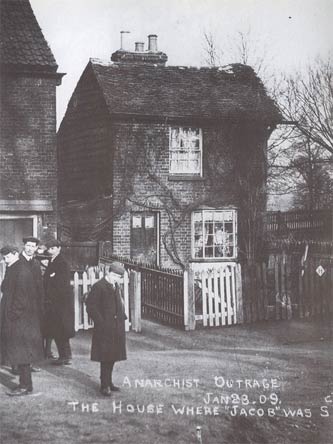
Compensation culture
Another section of Patricia's booklet I love is the listing of the people who applied for compensation. 'Compensation culture' is an accusation leveled at modern society, but 100 years ago, once it was announced that money was in the offing, the claims tumbled forward. One spurious claim, for example, revolved around the mental health problems of someone 'driven to drink' by viewing some of the chase.
Police bravery
Not everybody saw the policemen as heroes. A 1909 pamphlet from the month following the chase is preserved on marxists.org and unequivocally supports the protagonists:
"Words seem powerless to express admiration or condemnation before their [Helfeld and Lepidus] ferocious heroism. Lips are still; the pen isn’t strong enough, sonorous enough.
...
Let this be known. Let it be finally understood that in the current society we are the vanguard of a barbarous army. That we have no respect for what constitutes virtue, morality, honesty, that we are outside or laws and regulations. They oppress us, they persecute us, they pursue us. Rebels constantly find themselves before the sad alternative: submit, that is, abolish their will and return to the miserable herd of the exploited, or accept combat against the entire social organism."
Regardless of these rather eccentric views of the events, it was in the aftermath of the 'Tottenham Outrage' that the first ever medals for gallantry were awarded to police officers. The King’s Police Medal was instituted by King Edward V11 on 7 July 1909, and given to 3 of the policeman who had given chase. Posthumous awards only came later, and so at the time P.C Tyler went unrewarded, although his widow was financially recompensed, including a personal donation from Prime Minister Gladstone.
Despite some of the 'Keystone Cops' image of the bungled chase, there is no doubt that the police officers involved showed great bravery in facing the desperate and armed robbers whilst mostly unarmed themselves - and this was reflected in the public reaction. P.C Tyler's funeral was apparently attended by 3,000 of his fellow officers, and half a million people lined the route from his house to the cemetery.
Other sources of information
As well as the booklet by Patricia Collier that I mentioned earlier, there is an entire site devoted to the events at outrage1909.org.uk. This is to support another book: "Outrage! An Edwardian Tragedy" by J. D. Harris. A further web page about the outrage can be found here
If you are interested enough to want to find out more, then on the 28th January 2009 at Bruce Castle Museum, curator Deborah Hedgecock will be giving a free talk about the Tottenham Outrage.
Tomorrow (Friday Jan 23rd) is the centenary of this Outrage in Tottenham and to commemorate it a group of interested parties plan to walk the route of the chase discussing events of the day, their origins and their legacies. Meet corner of Chestnut Road and Tottenham High road (next to police stn) 11am.
There is a plaque honouring P. C. Tyler on the Chestnut Road wall of Tottenham Police Station.